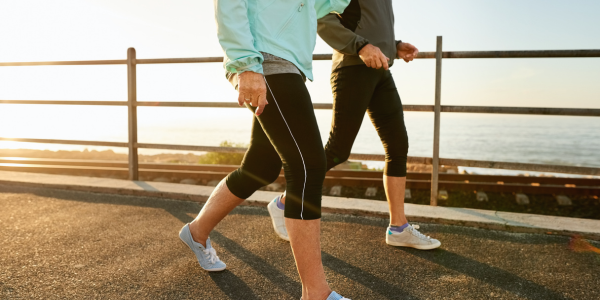Healthy Bones For A Healthy Life
Understanding the Importance of Healthy Bones
Strong bones are the cornerstone of an active, independent lifestyle. Our skeletal system serves multiple vital functions – it provides structural support, protects internal organs, enables movement, stores essential minerals, and produces blood cells. A decline in bone health can lead to serious complications and numerous complications that significantly impact daily activities and overall wellbeing.

The foundation for healthy bones begins early in life with proper nutrition and exercise. During childhood and adolescence, our bodies build bone mass at a rapid rate, reaching peak bone mass by our late 20s. After this point, maintaining bone density becomes increasingly important as natural bone loss begins to occur with age. If you’re noticing signs of bone weakness or joint discomfort, it could be a key reason to consult orthopedic doctor and take preventive steps before complications arise.
A 10% increase in peak bone mass during childhood can lower osteoporosis fracture risk by 50%, emphasizing the importance of early bone health and ongoing prevention.
Essential Calcium Rich Foods for Maintaining Bone Strength
Calcium-rich foods are essential for strong bones and preventing osteoporosis, making nutrition key to lifelong bone health.
Recommended daily calcium intake depends on age:
- Adults 19-50: 1,000 mg daily
- Women 50+ and men 70+: 1,200 mg calcium daily
Excellent sources of calcium include:
- Dairy like milk, yogurt, and cheese are top calcium sources—one cup of milk offers about 300 mg.
- Leafy greens like kale, collard greens, and bok choy are good calcium sources—1 cup of cooked collard greens has ~270 mg.
- Fortified Foods: Many plant-based milk alternatives, cereals, and juices are fortified with calcium. Check labels to identify products with added calcium.
- Seafood: Certain fish like sardines and salmon (with bones) provide calcium along with other bone-beneficial nutrients.
- Legumes and Nuts: Soybeans, white beans, almonds, and sesame seeds contain moderate amounts of calcium and can contribute to your daily intake.
Dairy, leafy greens, and fortified foods support lifelong bone health. In Noida and Greater Noida, a nutritionist can help tailor calcium-rich diets to individual needs.
The Key Role of Vitamin D in Enhancing Bone Health and Strength
Vitamin D is essential for calcium absorption; without it, calcium cannot be properly utilized by the body effectively, a calcium-rich diet can’t effectively support bone health.
The recommended daily vitamin D intake is:
- Adults under 70: 600 IU daily
- Adults over 70: 800 IU daily
Sources of vitamin D include:
- Sunlight Exposure: When skin is exposed to sunlight, it produces vitamin D naturally. Sunlight exposure is a natural way to boost vitamin D for bone health, though factors like skin pigmentation, age, and geographic location affect production efficiency.
- Fatty Fish: Salmon, mackerel, and tuna are excellent dietary sources of vitamin D.
- Fortified Foods: Many dairy products, plant-based milk alternatives, and cereals are fortified with vitamin D.
- Supplements: In regions with limited sunlight or for individuals with absorption issues, supplements may be necessary. Doctors often recommend supplements to ensure sufficient vitamin D for bone health, especially in older adults.
For residents of Greater Noida and Noida, where air pollution can sometimes limit effective sun exposure, dietary sources and supplements may be particularly important. Always check with your healthcare provider before beginning any supplements.
Exercise for Stronger Bones: Building and Maintaining Bone Density
Physical activity is key to bone health, helping maintain and improve bone density while reducing fracture risk. The American Academy of Orthopaedic Surgeons emphasizes that bones strengthen with physical stress, much like muscles. The best exercises for bone health include:
Weight-Bearing Exercises
These activities involve upright, weight-bearing movement against gravity:
- Brisk walking
- Jogging or running
- Dancing
- Tennis and other racquet sports
- Team sports like basketball and soccer
- Stair climbing
These exercises primarily benefit the bones in your legs, hips, and lower spine.
Strength Training
Resistance exercises using weights, resistance bands, or body weight help strengthen both muscles and bones:
- Free weights or weight machines
- Resistance band exercises
- Body weight exercises like push-ups and squats
For optimal bone health, aim for 30 minutes of weight-bearing exercise most days, along with strength training 2-3 times a week.
Regular screening can help monitor your bone density as you age, particularly for women after menopause and men over 70. Bone density scans are painless, non-invasive tests that can identify osteoporosis before fractures occur.
Warning Signs of Bone Problems
Recognizing the early signs of bone health issues can lead to timely intervention and better outcomes. Common warning signs include:
- Recurrent Fractures: Breaking bones easily or frequently, especially from minor falls or impacts.
- Loss of Height: A noticeable decrease in height over time may indicate vertebral compression fractures due to weakened bones.
- Posture Changes: Developing a stooped or hunched posture, known as kyphosis, can signal spinal bone loss.
- Back or Joint Pain: Persistent pain, particularly in the lower back, hips, or wrists, may indicate bone deterioration.
- Reduced Grip Strength: Difficulty gripping objects or decreased hand strength can be associated with bone density loss.
- Brittle Fingernails: While not directly related to bone density, brittle nails can sometimes indicate nutritional deficiencies that also affect bone health.
If you experience any of these symptoms, consulting with a healthcare professional is recommended. Finding the best orthopedic doctor for joint pain in Greater Noida can significantly improve your quality of life and prevent further complications.
Essential Reasons to Seek Orthopedic Care for Bone and Joint Health
Consulting an orthopedic doctor helps you make timely decisions about bone health. They diagnose and treat musculoskeletal conditions, including bones, joints, ligaments, tendons, and muscles.
You should consider consulting an orthopedic specialist if you experience:
- Persistent Pain: Joint or bone pain lasting more than two weeks requires professional evaluation. Chronic joint pain is one of the main reasons to consult an orthopedic doctor without delay.
- Limited joint movement may signal a serious condition.
- Joint Instability: Feeling that a joint might “give out” during normal activities.
- Soft Tissue Injuries: Sprains, strains, or other injuries that don’t improve with rest and home care.
- Chronic Conditions: Management of ongoing conditions like arthritis, osteoporosis, or gout.
- Sports Injuries: Specialized treatment for injuries related to athletic activities.
- Work-Related Injuries: Repetitive stress injuries or accidents occurring in the workplace.
Limited mobility and recurring injuries are important reasons to consult orthopedic doctors for professional Assessment and early intervention typically result in better outcomes and can help prevent the need for more invasive treatments down the line.
Finding the Right Expert for Joint Pain Relief
When searching for the best orthopedic doctor for joint pain, consider factors like experience and hospital affiliation. In Greater Noida, residents have access to highly qualified orthopedic specialists who provide comprehensive care for bone and joint conditions.
At Prakash Hospital, Dr. Vivek Prakash leads the orthopedic department, offering expert care and a wide range of services for bone and joint conditions:
- Joint Replacement Procedures:
- Total Knee Replacement
- Partial Knee Resurfacing
- Hip and Shoulder Replacement
- Arthroscopic Procedures:
- ACL Reconstruction
- Meniscus Repair
- Rotator Cuff Repair
- Trauma Care:
- Fracture Management
- Sports Injury Treatment
- Rehabilitation Services
Prakash Hospital in Greater Noida offers expert joint pain care, using advanced technology for precise diagnosis and personalized treatment.
Prevention is key to bone health. These strategies help keep bones strong for life:
- Balanced Nutrition: Ensure adequate intake of calcium, vitamin D, protein, and other bone-supporting nutrients like magnesium, vitamin K, and phosphorus.
- Regular Exercise: Incorporate weight-bearing and resistance exercises into your routine to stimulate bone formation and strengthen muscles that support bones.
- Healthy Lifestyle Choices:
- Avoid tobacco use, which accelerates bone loss
- Limit alcohol consumption to moderate levels
- Keep a healthy weight to ease stress on bones.
- Fall Prevention: Especially important for older adults, measures include:
- Removing tripping hazards at home
- Installing grab bars in bathrooms
- Using proper lighting
- Wearing supportive footwear
- Regular Check-ups: Schedule bone density tests and other screenings as recommended by your healthcare provider, particularly if you have risk factors for osteoporosis.
- Take bone health medications as prescribed and consult your doctor with any concerns.
Regular check-ups with specialists can help ensure you maintain healthy bones as you age. For residents of Greater Noida and Noida, the proximity of excellent healthcare facilities makes preventive care easily accessible.
Conclusion: Taking Charge of Your Bone Health
Maintaining healthy bones throughout your life is essential for overall wellbeing and mobility. Recognizing the importance of nutrition, exercise, and Preventive care helps you support bone health at any age.
For residents of Greater Noida and Noida experiencing bone or joint issues, access to quality orthopedic care is readily available. Prakash Hospital, under the expert guidance of Dr. Vivek Prakash, offers comprehensive orthopedic services to address a wide range of conditions.
Keep in mind that early intervention is crucial when addressing bone and joint problems. If you’re experiencing persistent pain, limited mobility, or other concerning symptoms, don’t hesitate to consult with an orthopedic specialist. Visiting a trusted multispeciality hospital in Greater Noida can ensure you receive comprehensive care from experts across disciplines. With proper treatment and guidance, you can keep your bones healthy, supporting mobility and independence long-term.
Whether you need preventive advice, treatment for an acute injury, or management of a chronic condition, the orthopedic specialists at a top 10 hospital in Greater Noida are equipped to provide the care you need. Take the first step toward better bone health by scheduling a consultation today.
